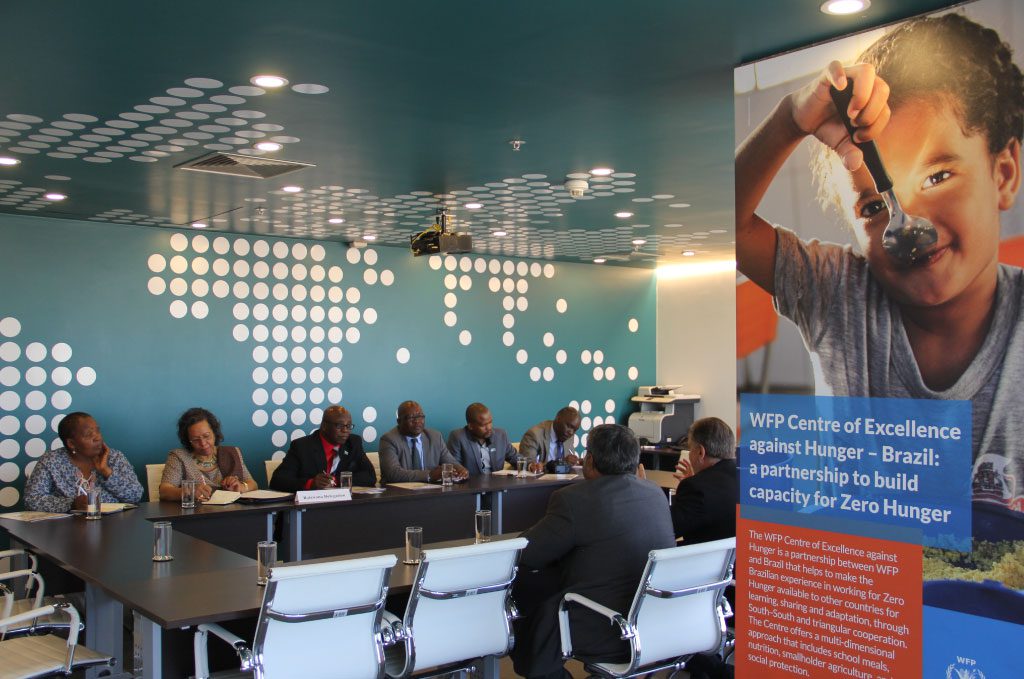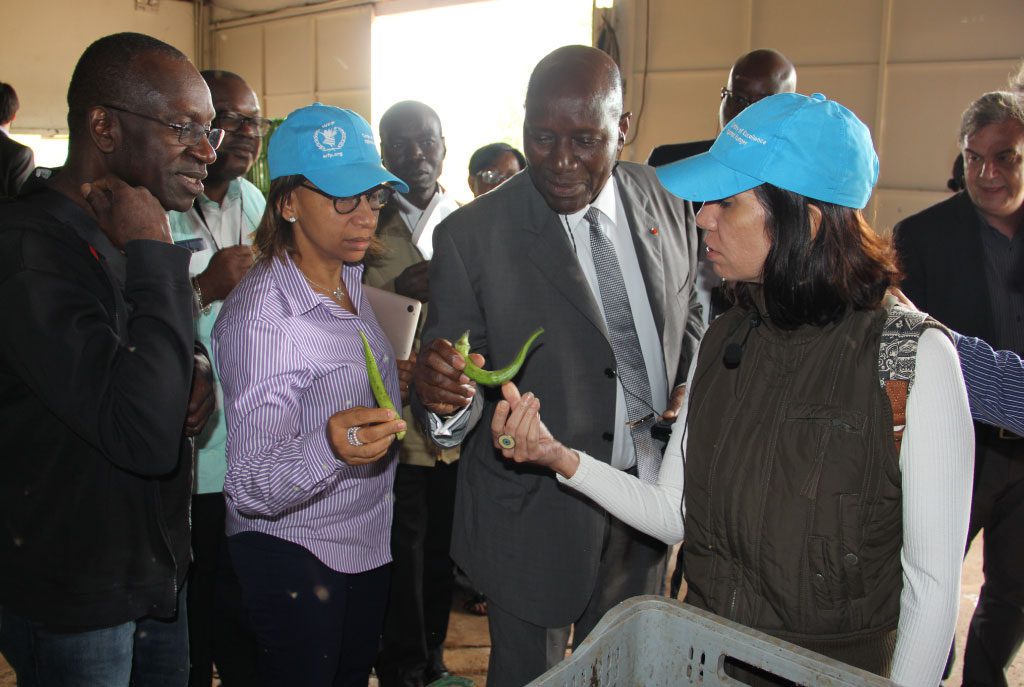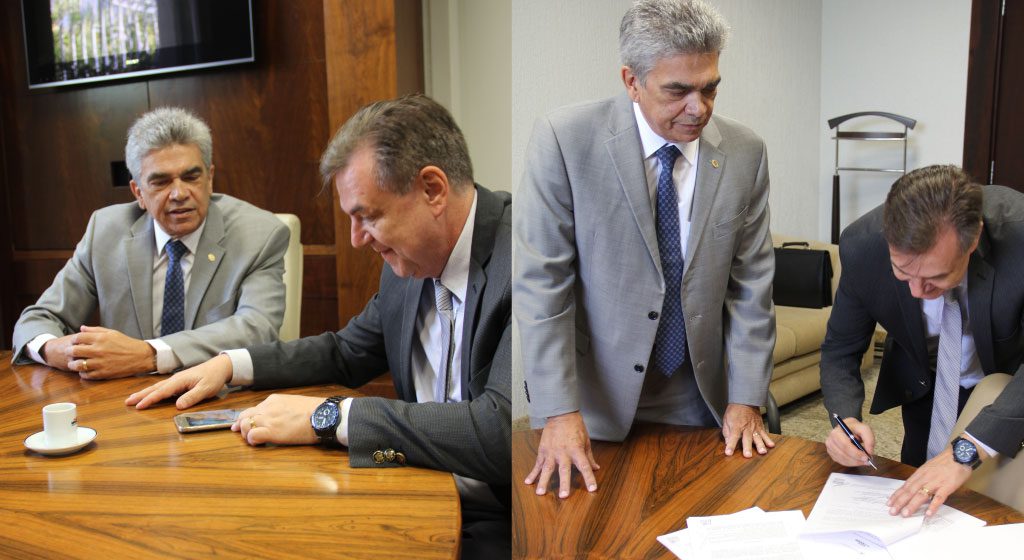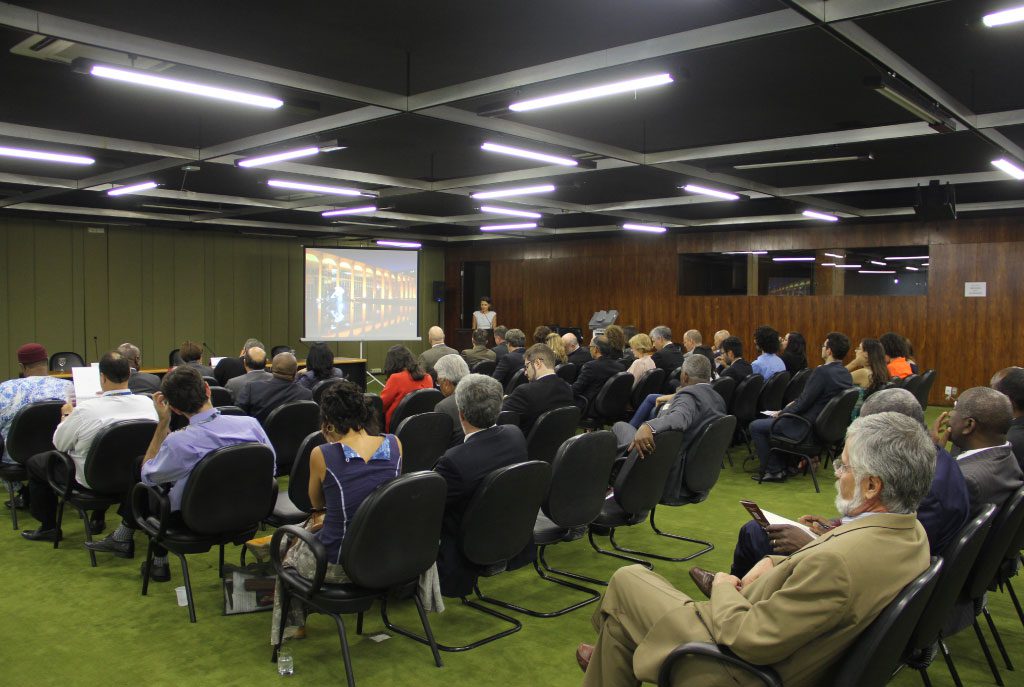
The year 2017 was marked by rising hunger in the world after a decade of decline. Conflicts have been the main driver of food and nutritional insecurity. In this context of instability and uncertainty, mutual aid among countries and investment in long-term solutions have become essential.
The Centre of Excellence against Hunger, created in 2011 by the World Food Programme and Brazil, celebrated six years of work with South-South cooperation for the creation and improvement of sustainable policies and programmes to fight hunger and poverty. Last year the Centre focused on investing in research initiatives about South-South cooperation and food and nutritional security, while keeping up the pace of technical assistance to partner countries.

Research
In 2017, the Centre of Excellence completed the study requested by the African Union on the benefits and challenges of school feeding on the African continent. The survey looked at the general situation of school feeding in Africa and detailed the status of 20 countries. The result was an overview of this kind of initiative on the continent and a series of recommendations to improve school feeding as a continental strategy for promoting sustainable development.
The Centre also held two research competitions. The first one selected the three best papers on building bridges between sustainable agricultural practices and school feeding programmes. The second awarded papers and projects about nutrition experiences in Brazil that can be shared with other developing countries through South-South cooperation.
The Centre of Excellence joined the University Center of Brasília (UniCEUB) and invited researchers to contribute to the Dossier on the Fight against Hunger in the World, a special edition of the Brazilian Journal of International Law (RDI). The dossier brings together papers related to food and nutritional security and their links to the Sustainable Development Goals.
Click here to access the Dossier

Technical Assistance
The Centre received delegations from eight countries and conducted technical missions to five countries to support sustainable development. Countries such as Swaziland, Botswana, and Myanmar participated for the first time in study visits to Brazil.
Togo and Burundi continued to receive technical assistance from the Centre to improve their school feeding policies. Zimbabwe has spent the whole of 2017 working to create a national school feeding programme linked to local agriculture with technical support from the Centre.
The experience of South-South cooperation has shown such good results that China decided to create a similar centre in partnership with WFP. China sent a delegation to learn about Brazilian food and nutrition security programmes and the work methodology of the Center of Excellence in Brazil.

Impacts
The Centre of Excellence has carried out an impact assessment for the first time. The evaluation comprised the Centre’s first five years of work. The results indicate that the Centre contributed significantly to the overall recognition of school feeding as a strategy to promote sustainable development.
The Centre also promoted the involvement of high-level government actors, which has expanded countries’ commitment to school feeding. The partnerships fostered by the Centre have helped to strengthen technical skills crucial to the development of national school feeding policies linked to local agriculture.




